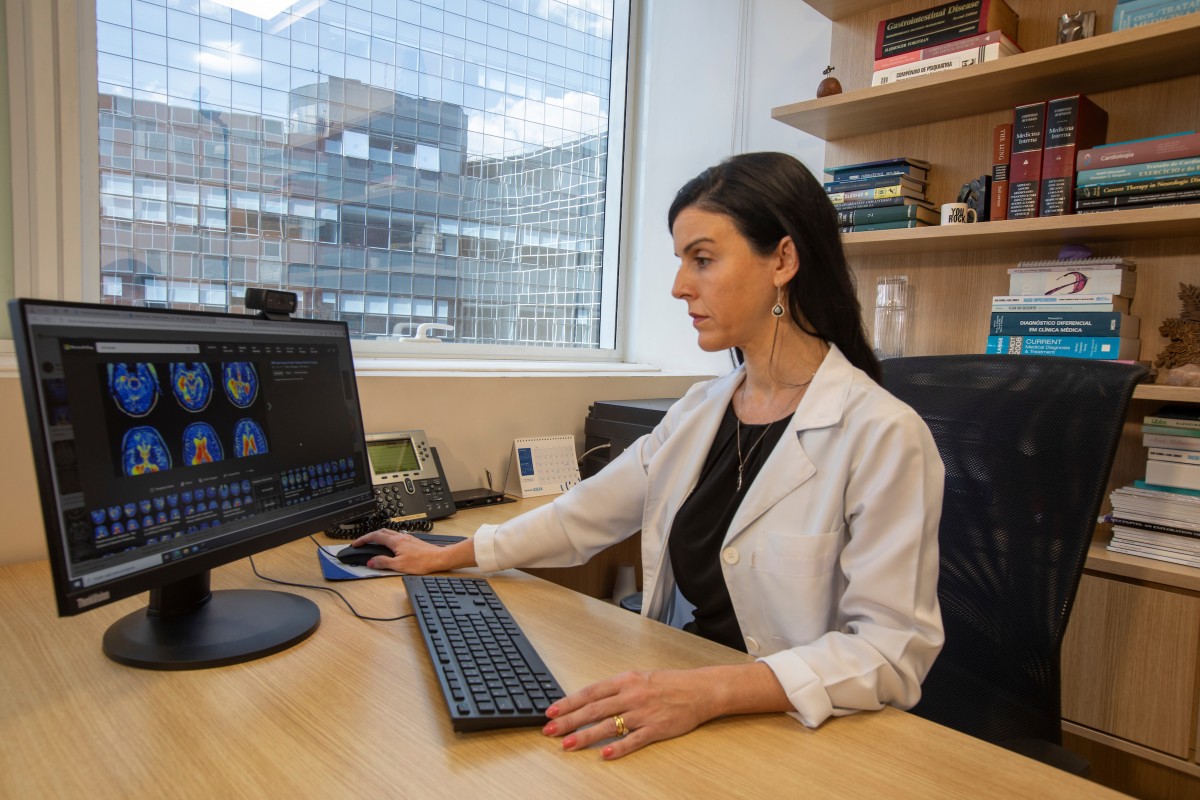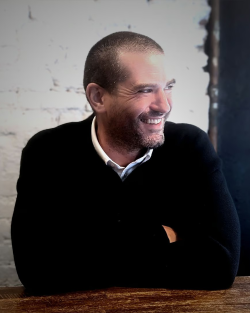Inspiring the next generation of doctors, health-care professionals and researchers


Dr. Connor Pepper, an anesthesia resident at McMaster, teaches a student how to place a breathing tube in a mannequin’s trachea using a video laryngoscope. Close to 200 students from 43 Ontario high schools attended a Discovery Day in Health Sciences symposium hosted by Hamilton Health Sciences and McMaster University to learn more about careers in medicine, health care and research.
High school friends Addison Hrstic, Adina Mus and Morgyn Furness know they want careers in health care someday. “But we’re not exactly sure what areas of health care we want to focus on,” says Furness, who along with her friends is in Grade 10 at Blessed Trinity Catholic Secondary School in Grimsby. “We’re here to find out more about our options.”
On May 30, the teens attended the Canadian Medical Hall of Fame’s Discovery Days in Health Sciences symposium at the HHS McMaster University Medical Centre (MUMC) to learn more about potential career paths in medicine, health sciences and research.
The London-based Canadian Medical Hall of Fame honours excellence in health sciences and medicine, and its Discovery Days are one-day events held across Canada to give secondary school students opportunities to explore career options. This program is delivered in partnership with universities, hospitals and research institutions, and the Hamilton event was hosted by the Hamilton Health Sciences (HHS) research team and McMaster University.
Welcoming future health-care professionals
The symposium attracted close to 200 students in Grades 10 to 12 from 43 Ontario high schools, who were selected by their schools based on their interest in medicine, health sciences and research careers.

This workshop included a simulated general anesthetic demonstration in a high fidelity simulation lab that represents an operating room.
“The students taking part in this event represent the future of medicine, health care and research in Canada,” says Dr. Marc Jeschke, vice president of research and chief scientific officer for HHS. “The career paths they’re considering could potentially lead to the discovery and delivery of new, cutting-edge treatments and cures for patients in Canada and around the world.”
“They make it look easy”
The symposium featured 14 workshops led by researchers, doctors, staff, instructors and learners from HHS and McMaster, and included interactive experiences for participants. The Grimsby trio signed up for the anesthesia workshop at the Centre for Simulation-Based Learning at MUMC, where they got to try placing a breathing tube into a windpipe of a mannequin.

A student practices intubation using a direct laryngoscope. Intubation is an essential skill for anesthesiologists since it’s often required for general anesthesia. It’s also a life-saving skill in emergencies when breathing support is needed.
“The doctors make it look easy but when you try it yourself, you realize how difficult it actually is,” said Mus.
Hrstic added, “The doctors doing this work have so much knowledge. It’s so inspiring.”
Other workshops included a session on sepsis, where students learned about this life-threatening condition from Dr. Alison Fox-Robichaud, an HHS critical care physician and the scientific director of Sepsis Canada. Participants also heard presentations by two sepsis survivors and played a trivia game to test their knowledge.
Students interested in finding out more about a physician assistant’s role learned the ropes from McMaster students training this profession. Physician assistants are qualified to do many of the same medical tasks and procedures as doctors, and this workshop provided opportunities to take vitals, interpret test results and take a detailed patient history.
Big variety of learning opportunities

Students taking part in a burn treatment workshop practiced pipetting, a technique used to transfer measured volumes of liquids. Pipetting is used in a laboratory setting to prepare tissues and blood samples for analyses to study how burns influence metabolism.
In a burn treatment workshop, students learned about emerging strategies using 3D tissue engineering and stem cell therapy to treat burn patients. This included exploring tissue engineering approaches including 3D scanning and printing, learning the applications of employing stem cell for skin regeneration, and discussing career development in the relevant fields such as regenerative medicine and pharmaceutical sciences. This workshop included hands-on activities with computer-aided design (CAD), 3D scanner and printer operation, and CAD model printing of phantom skin wounds.
At a physiotherapy workshop led by HHS pediatric physiotherapist Jenna Keown, students heard more about the role and pathway involved in becoming a physiotherapist. Tara Packham, an occupational therapist with the HHS hand clinic, gave students an opportunity to experience simulated loss of hand function and learn about the role of rehabilitation and activity adaptation for people with injuries or conditions affecting their upper limbs.

Students in a burn treatment workshop play a game of “speed pipetting,” racing to move a measured volume of liquids from one row to another as fast as possible.
HHS pediatric dietitian Heather Mileski and Dr. Jenna Dowhaniuk, a pediatric gastroenterologist and medical lead of the pediatric celiac disease clinic at HHS McMaster Children’s Hospital, offered a workshop on caring for kids with celiac disease that included students trying to insert an endoscope through a mannequin’s mouth. This instrument, which includes a camera, is used to look deep into the body.
Students make a cast, learn to tie stitches
Students interested in orthopedic surgery tried casting, suturing and knot-tying techniques while another group learned about taking images of the human skeleton, and the science used to capture these images.
There were also workshops on brain function and diseases such as dementia, transforming health care through innovation, patient-researcher partnerships, and a mini med school led by McMaster medical students.
Offered by the Canadian Medical Hall of Fame
The symposium included welcoming comments by Nani Moleko, director of development for the Canadian Medical Hall of Fame; a keynote lecture on the challenges faced by health care workers by Dr. Margaret McKinnon, associate chair of research with McMaster’s Department of Psychiatry and Behavioural Neurosciences, Faculty of Health Sciences; and a career panel discussion with health care professionals.
Schools interested in sending students to the 2025 symposium can follow the Canadian Medical Hall of Fame website for updates as they become available. HHS teams interested in presenting next year can contact Donna Catherwood, research program and events coordinator, at [email protected]
Related Posts
link



